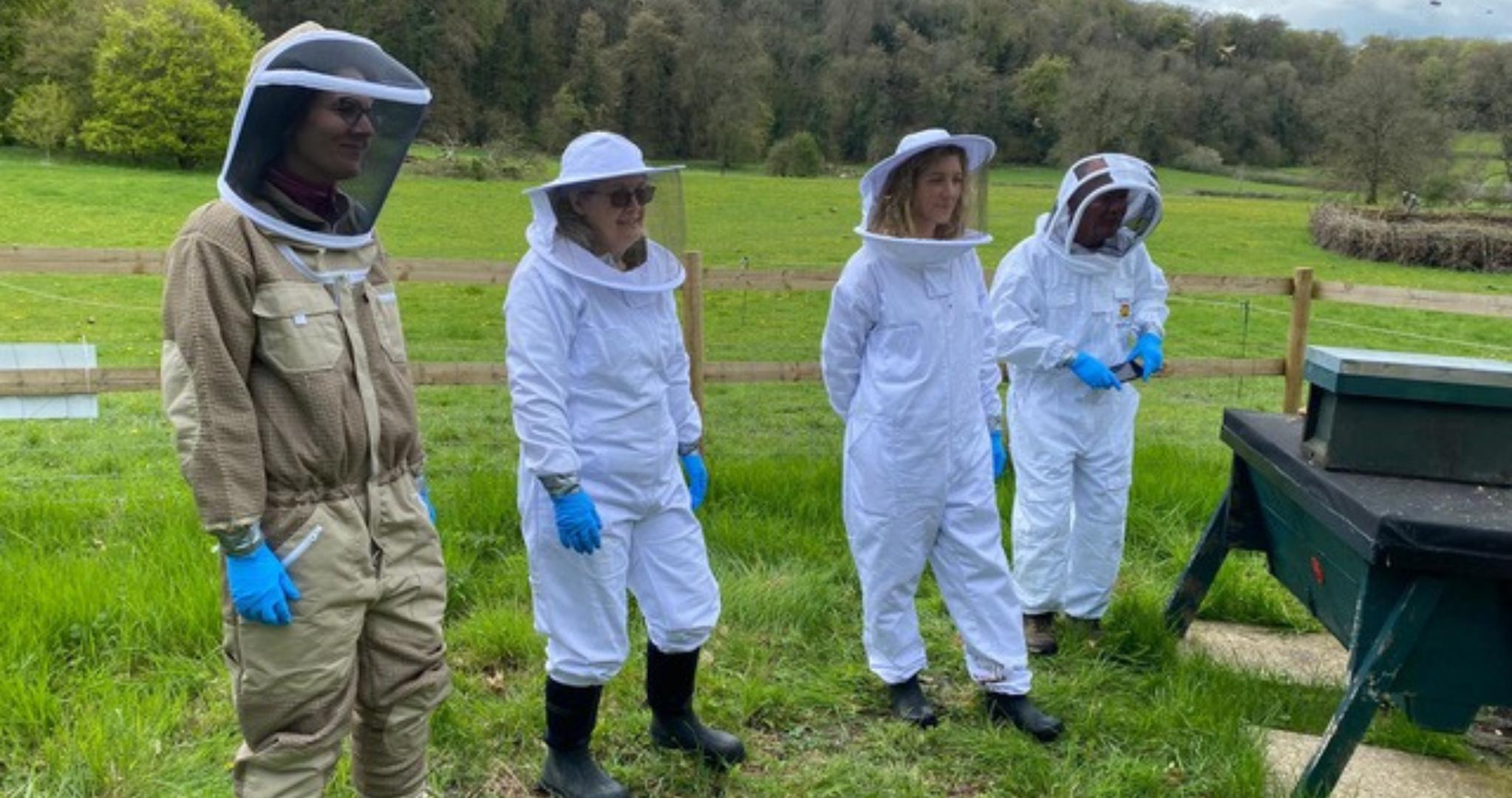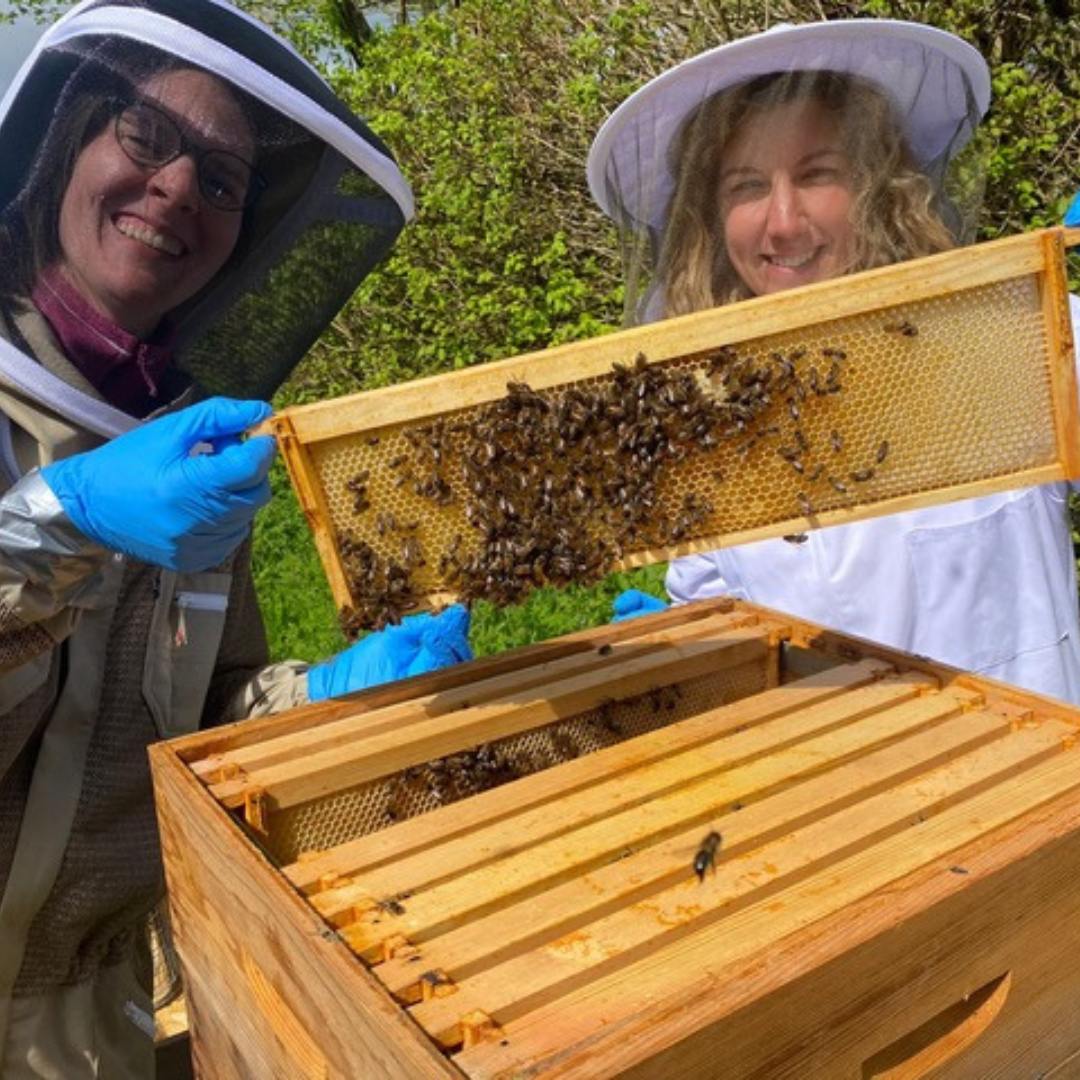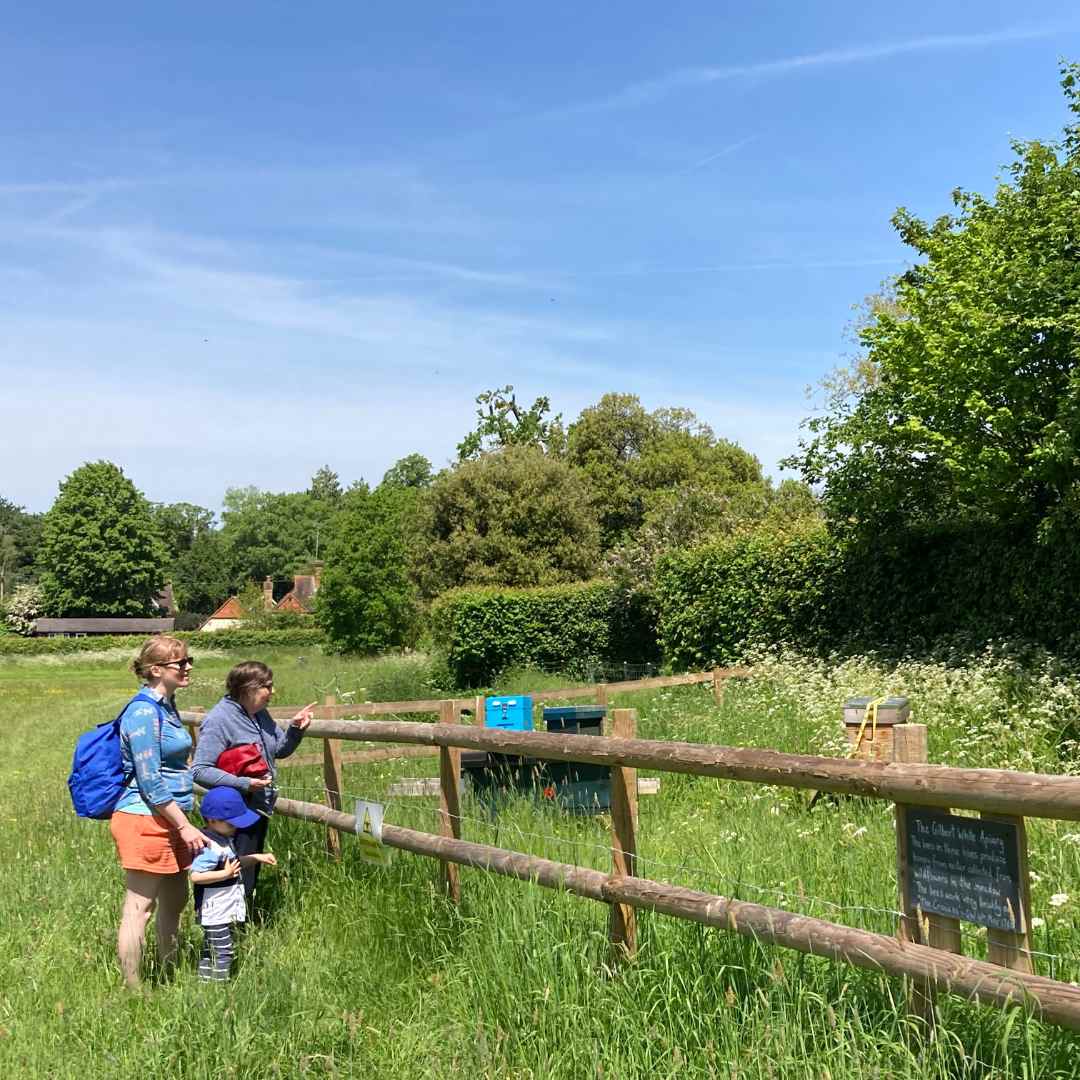Apiary
In 2022 the first beehives were set up in the meadow of Gilbert’s grounds. There are currently three hives which are home to colonies of honeybees. On the 5th of June 2023 Gilbert White’s house & Gardens became the first institutional member of the British Beekeeping Association in 80 years!
Over the Summer of 2023, the museum put on an exhibition celebrating 400 years since the first edition of ‘The Feminine Monarchie’ (the History of Bees) by Charles Butler was published. Gilbert White was the great great nephew of Butler!
The apiary team are busy all year round. In their first year the group made over 300 jars of honey, ranging from liquid to crystallised form. The beekeepers have also led theory and practical classes, as well as participating in educational events.
The group run beekeeping theory classes, where they teach how to set up and maintain a beehive, as well as instruction as to how to produce products from the hives.
Following completion of the theory classes your knowledge can be applied in practical classes, from identifying the Queen, harvesting honey to jarring it up and more!
Please contact us if you would like to get involved.
The team at Gilbert White's House & Gardens focuses not only upon the conservation of honeybees but other pollinating insects too. A new emerging threat to pollinators is the Asian Hornet. This species was inadvertently brought to France in 2004 and has since spread and predated a number of pollinators including honeybees. The Asian Hornet can kill between 30 to 50 bees per day. Due to the importance of pollinators within the ecosystem it is crucial that any sightings of Asian Hornets are reported to the UK Centre for Ecology and Hydrology so that they can be dealt with swiftly.
Click on the link to report a sighting (with a photo): Report A Sighting
For more information on the impact of Asian Hornets please go to the British Beekeeping Association or visit the RSPB.



